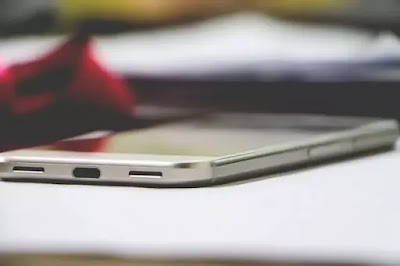The EU's USB-C ruling will not take effect in
time for the iPhone 15, but surely it will not
include Lightning?
Charging ports have it tough out there (unless you're USB-C).
Updated on December 8, 2022: The EU's USB-C directive has been approved, but the deadline for phones and other mobile devices sold in the EU to have USB-C is set for December 27, 2024 - more than two years away (note the date of Autumn 2024 outlined below has slipped slightly). Apple is unlikely to cut it as fine as the iPhone 16 to adopt USB-C because it would quickly become illegal, but the long bed-in time means that the iPhone 15 could easily avoid the rules. Previously, we thought USB-C was a done deal for the iPhone 15.
The original story is continued below.
We've been hearing about the need to shift charging ports to USB-C for a few months now. Most notably, this has given rise to numerous rumors about future iPhones and Apple products. But it's not just Apple products that will be impacted. And the switch has only recently become official, putting the EU back in the spotlight (again). At the very least, it's not Brexit this time, eh?
Despite all of the speculation and proposed rule changes, the EU has confirmed that all devices must use USB-C by the autumn of 2024. According to the European Parliament:
USB Type-C will be the standard charging port for all smartphones, tablets, and cameras in the EU by autumn 2024, Parliament and Council negotiators agreed today.
The EU wants to stop consumers from buying a new "charging device and cable every time they buy a new device" with the new rule. Consumers in the EU will be able to use "one single charger for all of their small to medium-sized portable electronic devices" once the rule goes into effect at the end of 2024. The legislation must still be formalized in a vote later in the summer, but the European Parliament has already stated that the law will be implemented.
Phones, tablets, e-readers, earphones, digital cameras, headphones, headsets, handheld consoles, as well as portable speakers, will all be required to have a charging port. Some cameras, consoles, and speakers continue to use older Micro-USB ports, so they will be impacted.
Specifically, Apple's Lightning products (including the iPhone and AirPods) will be impacted. In the near future, the EU's most recent technology rule will also apply to laptops. Laptops have a later deadline to shift to USB-C, but the majority already use the newer charging cable.
Why does the EU require a switch to USB-C?
The EU's USB-C mandate is driven by two factors: consumers and the environment. As previously stated, the switch will result in consumers only needing one charging cable for all of their devices. It certainly simplifies charging and lowers the cost of purchasing new cables and bricks. As an added bonus, it means that even more devices will be able to provide fast charging and data transfers. But that isn't all.
This new legislation has a very green thumb, with the EU also considering environmental impacts. The EU estimates that the USB-C only rule will save around 11,000 tonnes of e-waste per year by eliminating the need to replace multiple chargers. That's a significant reduction in e-waste, which is certainly better for the environment. However, the EU may have forgotten that everyone who owns Lightning, Micro-USB, or other non-USB-C cables will have to throw them away by 2024. It remains to be seen how this e-waste balances out, but it appears that the Great USB-C Switch of '24 will not be as eco-friendly as the EU claims.
Among these advantages, one major concern stems from the EU ruling: what else might the EU impose? It is concerning that the EU's legislation can make these changes on the spur of the moment. What if the EU decides to bring back the headphone jack by 2025? The power dynamic in this situation appears to be unbalanced, to say the least.
How will this affect me?
In the EU, any devices that do not have a USB-C charging port must be replaced by the end of 2024. That means that any iPhone, camera, or other device purchased in the EU after 2024 will have a type-C port. Of course, any devices you already own will continue to function with the existing port. Replacement cables, however, may become more difficult to find as manufacturers discontinue production.
While it is unclear how the EU intends to enforce the regulation, we believe it will fine or prohibit the sale of devices that do not use USB-C in EU member countries. So don't expect any "brave" manufacturers to avoid USB-C after the legislation takes effect. We've heard that Apple intends to switch the iPhone to USB-C (along with AirPods and other accessories) before 2024, so these are concerns (unless Apple drops the port altogether). Other businesses should follow suit and not wait until the last minute.
What happens to countries outside the EU remains to be seen. According to the BBC, the UK government is not "currently considering" adopting the same legislation.
This means that manufacturers who are still using other charging ports can continue to do so in the US, UK, and elsewhere while having a USB-C version for EU countries. International variants aren't new, so this is a possibility, though it seems a little nose-cutty. Manufacturers, such as Apple, are likely to switch to USB-C across the globe to simplify production.
Lightning, Micro-USB, and other charging cables rest in peace.





0 Comments